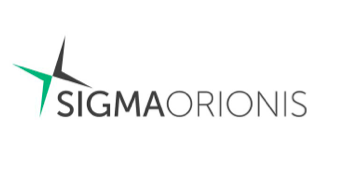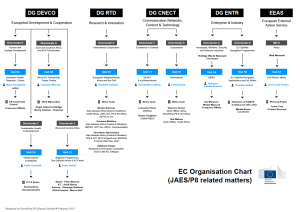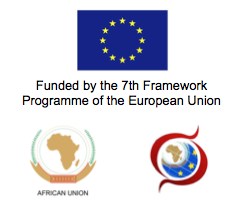Background
A first wave of market liberalisation and private investments are at the origin of impressive developments in Africa such as the unprecedented boom in mobile phones with a number of mobile users that grew from nearly 10 millions in 2000 to almost 400 millions today (note: mobile networks currently covers 90% of the urban population…). This means that through innovative business models (e.g. e-Services) as well as infrastructure sharing, network operators are today cutting costs and increasing access. But these efforts have limitations without favourable regulatory environments, licensing and taxation regimes that further enhance business, investments and penetration, instead of inhibiting them. There is a lot to do in this field, especially since the high levels of coverage hide significant variations between the different African countries.
Unlike expanded access to mobile telephony services, access to the Internet and broadband services remain very low on the continent, mainly due to prohibitive tariffs, limited capacity and availability of infrastructures as well as poor computer literacy. In this domain once more, fair and predictable pro-access regulatory environments, promoting markets liberalisation and competition need to be implemented as well as a sound spectrum management, which is essential for the roll out of wireless broadband services.
 The challenges are now to tackle those remaining gaps in line with the African Union (AU) Summit 2010 outcomes, in order to – among other things – exploit the potential of mobile and wireless technologies, including satellite technologies, for high speed data services, and leverage the conditions that fuelled the success of mobile telephony penetration, to further increase investments in broadband infrastructures.
The challenges are now to tackle those remaining gaps in line with the African Union (AU) Summit 2010 outcomes, in order to – among other things – exploit the potential of mobile and wireless technologies, including satellite technologies, for high speed data services, and leverage the conditions that fuelled the success of mobile telephony penetration, to further increase investments in broadband infrastructures.
New international submarine cables are bringing the broadband fibre capacity Africa was lacking, and competition among providers is resulting in substantial tariffs decreases. But still, terrestrial backbones are missing and strong coordination and investments efforts are requested for bridging the gaps and exploit synergies, especially in the transport and energy sectors.
ICTs have a unique potential to fast-track African development, especially as far as the Millennium Development Goals (MDGs) achievements are concerned.
Fast-tracking is the central word: ICT have a huge and rapid transformational power in all socio-economic sectors and are remarkably cost-effective regarding the provision of services in areas like healthcare, education, energy and environment management, transport systems, government administration or trade and finance. The near ubiquity and increasing affordability of mobile phones in developing countries, along with the growing availability and affordability of connectivity and Internet services, highlight the potential for a strategic shift in the way that ICT can currently impact development.

In order to better exploit the concrete opportunities those technologies can offer, it is important to move forward on the most operational basis. There is no need to “re-invent the wheel” since priorities and action plans are already available. What is required today are concrete commitments and leadership to actually and efficiently implement agreed priorities and action plans.
The Africa-EU cooperation related to those specific objectives and the achievement of successful African Internet and broadband markets relies on two complementary Africa-EU Strategic Partnerships:
- The Partnership on Infrastructures for supporting the rolling-out of physical broadband infrastructures (the so-called 3rd Partnership) and
- The Partnership on Science, Information Society and Space (the so-called 8th Partnership).
Those two partnerships support complementary capacities, especially in the fields of regulation, human resources, local content and applications. They are aligned on existing African priorities and action plans, such as ARAPKE (the African Regional Action Plan on the Knowledge Economy), PIDA (the Programme for Infrastructures Development in Africa), and the “Reference Framework for the Harmonization of ICT Policies and Regulations in Africa” (HIPSSA) that were all adopted at AU level.
Based on these existing frameworks and identified synergies with the European Union (EU) Digital Agenda flagship initiative, the European Commission (EC) is working hands in hands with the African Union Commission (AUC), to develop a sound Partnership, based on trust, mutual respect and interests, focused on delivering concrete results on the ground.

The current challenge for both parties is to convince European and African public authorities that wide spreading ICTs and e-services cannot be left to market forces alone. Public commitment and corresponding allocation of financial resources is essential to foster the development of an inclusive Information Society, establish sound Private-Public Partnerships (PPPs) and match business with development objectives.
The main objective is to maximise impact through a better alignment of national development programmes on a common set of priorities, avoiding fragmentation of initiatives and federating critical mass of resources. This implies a strong mobilisation and involvement from public and private stakeholders, a reinforced cooperation, and a reengineering of the current programming methods. Cooperation financial instruments need to be reviewed accordingly and adapted to this new context. The EU and Community funding mechanisms in particular need to be made more reactive and accessible to cope with the dynamics and needs of the ICT sector. Innovative multi-stakeholders cooperation has to be established involving public and private stakeholders as well as financial institutions.
ICTs are indeed essential drivers of innovation in all socio-economic sectors and there is strong potential in Africa in this domain. This is notably highlighted by many innovative mobile applications that were developed locally, in the field of mobile banking but also in the e-health, e-agriculture or e-government domains. Mobile phones ubiquity launched a very promising wave of development through the deployment of new voice and data services that cannot only be expanded in Africa, but also exported to other parts of the World.
Besides adapting business models and environments, developing infrastructures and human capacities, some technological issues need to be tackled in order to widespread use ICTs. These include for instance low cost devices, user interfaces, content generation and provisioning systems up to networks self-configuration and healing. Beyond global challenges, related to health or environment, there is a strong need for local adaptation, in order to make technological developments relevant and usable taking into account African local needs and environments.
Trade is also an engine for economic growth and development. The development of trade requires more investments and diversified economies. Knowledge has become a key factor in industrial production. Information communication networks provide platforms for global trade and connect emerging markets and established economies such as Africa and Europe. Services based on ICT provide information on distant markets and create new business opportunities for entrepreneurs. Transfer of knowledge between people links businesses as well as encourages the adoption of new innovative production.







